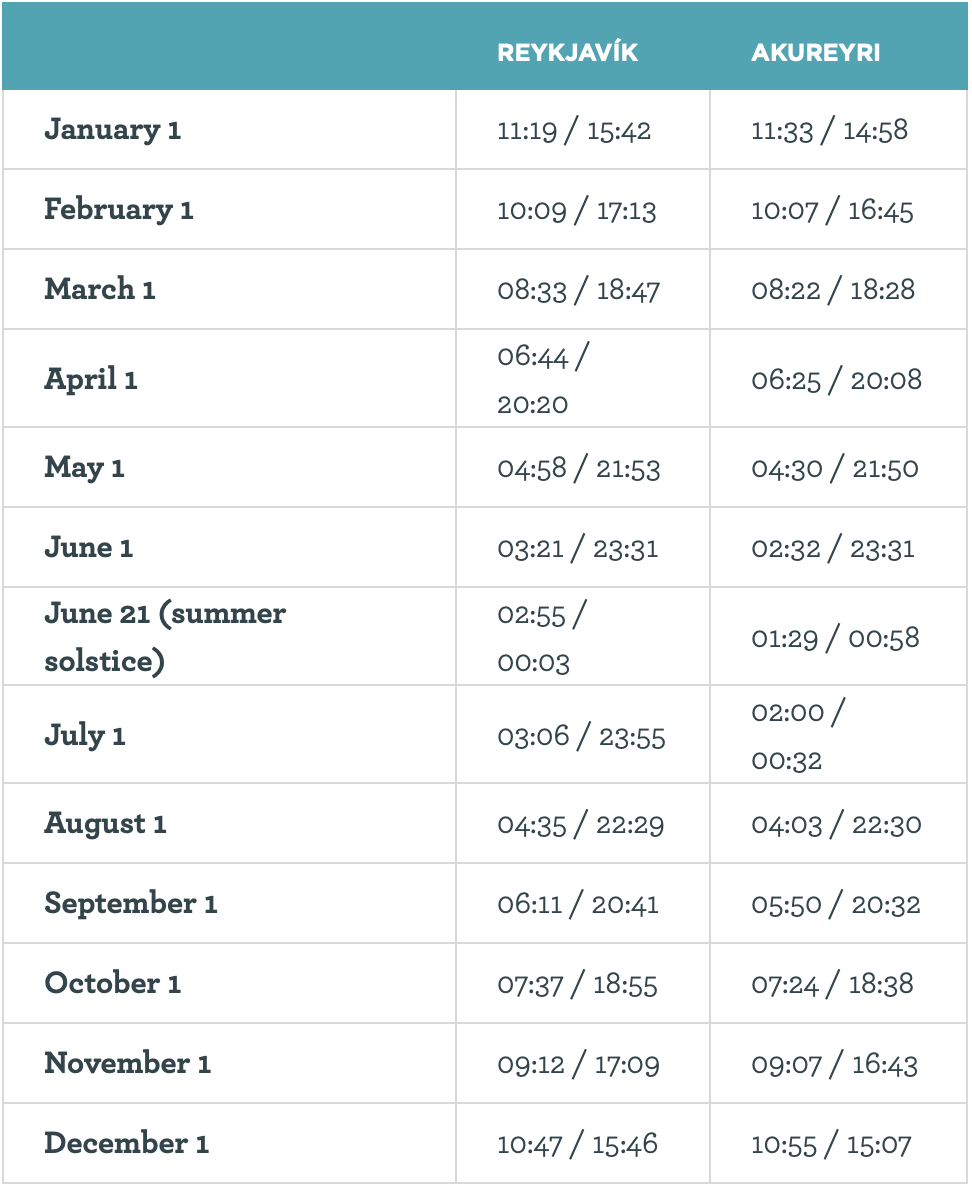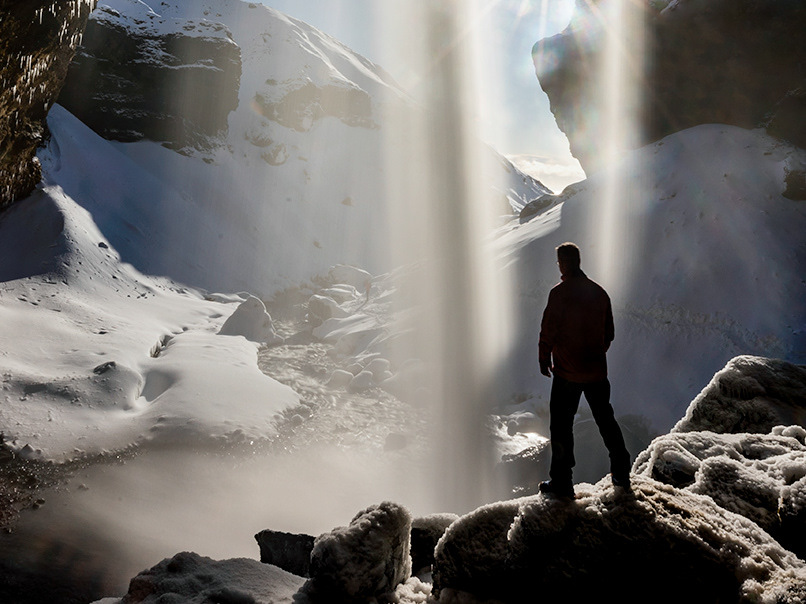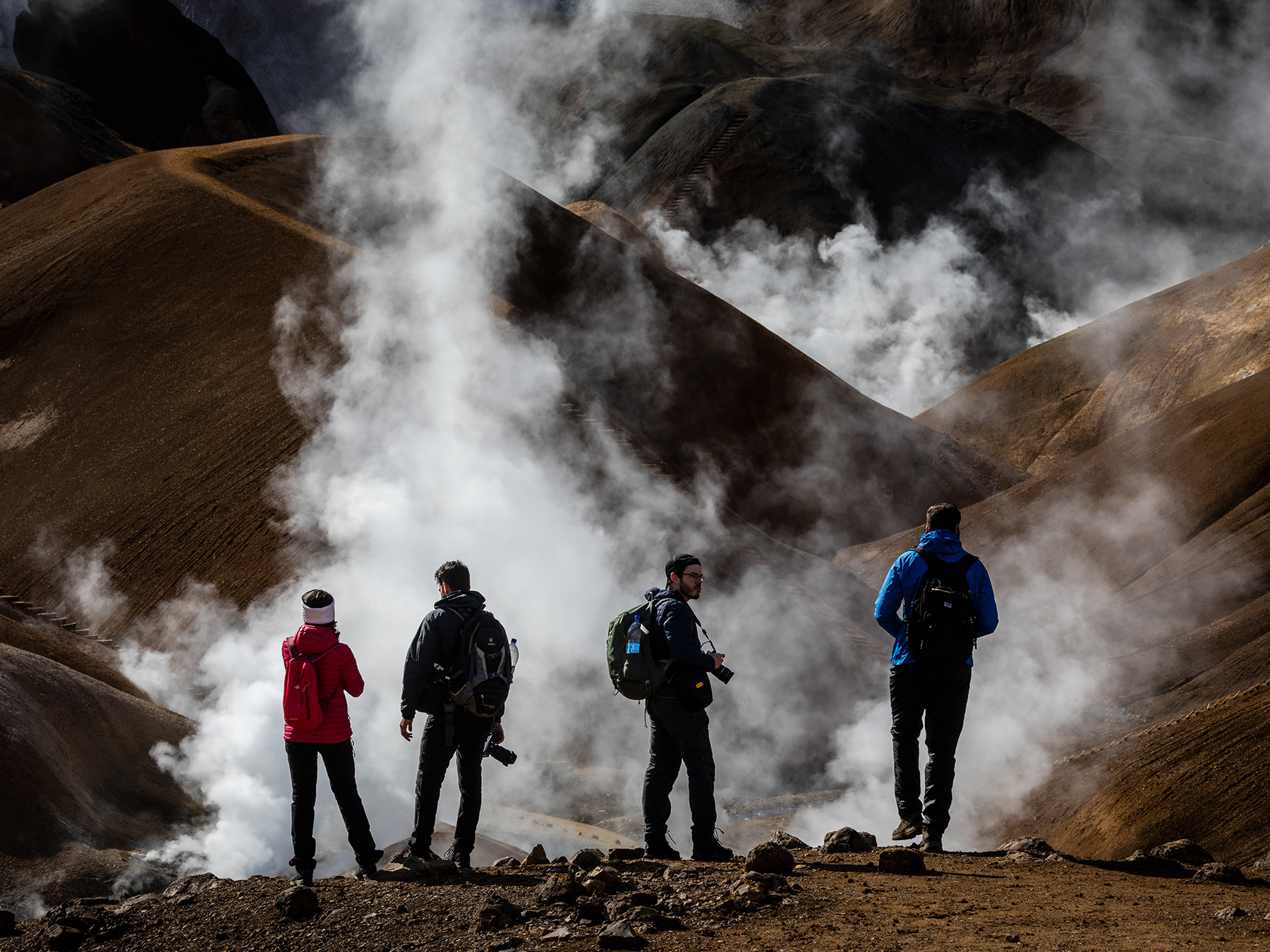Time and daylight
When to expect sunrises, sunset, northern lights and midnight sun?
Before you book flights and organise a trip to Iceland, it is good to know about time zones and sunlight hours.
What time zone is Iceland?
Iceland is on Greenwich Mean Time (GMT), or UTC +0, and does not adjust to daylight savings time.
When does the sun rise and set in Iceland?
I use the app Photo Pills to see accurate sunrise/sunset from the location I want to shoot at.
Here are some typical examples of sunrise and sunset times to the right:

Iceland daylight in summer
Owing to Iceland’s proximity to the Arctic Circle, the country experiences “white nights” in the summer months due to the midnight sun, a natural phenomenon in which the setting sun doesn’t fully dip below the horizon.
Iceland experiences its peak daylight hours during the Summer Solstice in late June. Some travellers find it beneficial to bring sleeping masks during summer visits.
Travelling and photographing in the night during those bright summer nights is interesting, the light could be great, less wind and fewer people in your way.
Iceland daylight in winter
At the other extreme, the days are much shorter during winter, with only a few hours of daylight around the solstice in December. Fortunately, this means more opportunities to witness the northern lights! Also called aurora borealis, these colourful, dancing lights are caused by charged particles from solar flares colliding with the earth's atmosphere.
They are mainly visible in the high northern latitudes, including most of the Nordic region, and can only be viewed in the darkness of night with no cloud cover.
During the shortest months of daylight you need to use the time you have to shot very well. The sun is low on the horizion and that can be very interesting to use the sun.
Note: The best months for viewing the northern lights are October through April, with peak visibility from December through February. However, as the aurora borealis is a natural phenomenon, sightings cannot be guaranteed.
There are few good websites to follow and monitor to see the activity and cloud cover in Iceland:
www.vedur.is - the icelandic national weather website
www.belgingur.is - good for cloud cover



